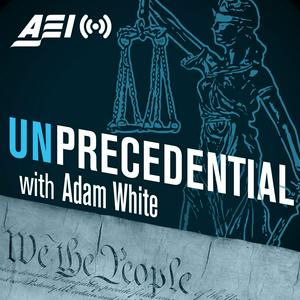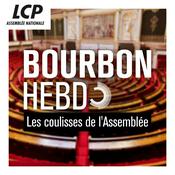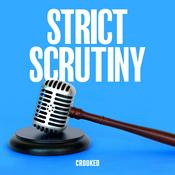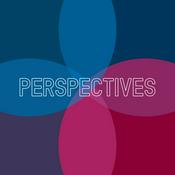48 épisodes

Unprecedential goes on summer break: Adam and Elayne look back, and look ahead
22/7/2021 | 27 min
After fifteen months and 46 episodes, Unprecedential is packing up and going to the beach. Today’s episode features Adam and Elayne reflecting on their favorite conversations thus far. They also draw out some general lessons about constitutional governance from the wide-ranging insights brought by guests. In the meantime, watch out for bonus episodes this summer and, later on, a revamped show with a new format. Stay tuned!

Is America's criminal justice system truly just? Judge Jed Rakoff argues for reform
08/7/2021 | 1 h 9 min
The Bill of Rights provides a great number of protections for accused and convicted criminals: it promises trial by jury; it prohibits “cruel and unusual” punishment. And in this system, defendants are presumed innocent until proven guilty. Yet few criminal indictments today are actually decided by a full trial; instead, prosecutors have many points of leverage, and defendants have strong incentives to plead guilty. Are these tools and incentives good for constitutional government?Judge Jed Rakoff, of the U.S. District Court for the Southern District of New York, recently published a book arguing for major reforms: “Why the Innocent Plead Guilty and the Guilty Go Free: And Other Paradoxes of Our Broken Legal System.” On April 29, 2021, he participated in a public web event with Adam, to discuss the limits of forensic science, prosecutors’ advantages over defense during trials, and other ways the criminal justice system is falling short. The recording of their conversation is today's podcast episode.

Fears of a setting sun: Dennis C. Rasmussen on the worries of Washington, Hamilton, Adams, and Jefferson
24/6/2021 | 58 min
From today’s vantage point, the Founding era often seems a time churning with decisive hopefulness. The 1789 Constitutional Convention certainly featured vehement debate, as Gary Schmitt and Joseph Bessette noted in our last episode. But optimism appeared to prevail: on the last day of the Convention, Benjamin Franklin concluded that a rising, rather than a setting, sun was the apt metaphor for the fledgling nation. Yet many of our most revered Founders –Washington, Adams, Jefferson, Hamilton – expressed deep concern for the new nation’s prospects for success. The framers’ worries, often overlooked in scholarship, is the subject of Syracuse University Political Science Professor Dennis Rasmussen’s new book, Fears of a Setting Sun: The Disillusionment of America's Founders. Listen as Adam and Dennis discuss the Founders’ fears – and one framer whose measured confidence was notable exception.

Neither monarch nor magistrate: Joseph M. Bessette and Gary J. Schmitt on crafting a republican executive
10/6/2021 | 1 h 1 min
When the Constitutional Convention began in 1787, delegates were tasked with creating a government that could simultaneously avoid monarchy’s overreaches and the Articles of Confederation’s ineffectiveness. In other words, the Convention needed to craft a republican executive. The Convention’s arguments over presidential selection, structure, and scope captured both the danger and fragility of executive power – twin concerns still evident in today’s debates about the presidency.Claremont McKenna College professor of Government Joseph Bessette and frequent guest and AEI scholar Gary Schmitt join Adam on Unprecedential to discuss their recent AEI report, “Crafting a Republican Executive: The Presidency and the Constitutional Convention.”

Defining women’s rights: Erika Bachiochi on the constitutional debate over women’s equality
27/5/2021 | 57 min
Since the 19th Amendment ratified women’s right to vote in 1920, the quest for women’s equality in America has taken many turns. But the philosophical lineage behind the legal and cultural debates about women’s rights remains visible in today’s disagreements. Intellectual descendants of John Stuart Mill argue that reproductive autonomy best achieves economic equality for women. Heirs of Mary Wollstonecraft’s thought, on the other hand, emphasize the need for laws that require employers to respect men’s and women’s family obligations. Erika Bachiochi, fellow at the Ethics and Public Policy Center, senior fellow at the Abigail Adams Institute, and author of the forthcoming book The Rights of Women: Reclaiming a Lost Vision, joins Adam to trace and evaluate the evolving debate over the political, legal, and cultural meaning of women’s equality.
Plus de podcasts Gouvernement
Podcasts tendance de Gouvernement
À propos de Unprecedential
Écoutez Unprecedential, EU Scream ou d'autres podcasts du monde entier - avec l'app de radio.fr

Obtenez l’app radio.fr gratuite
- Ajout de radios et podcasts en favoris
- Diffusion via Wi-Fi ou Bluetooth
- Carplay & Android Auto compatibles
- Et encore plus de fonctionnalités
Obtenez l’app radio.fr gratuite
- Ajout de radios et podcasts en favoris
- Diffusion via Wi-Fi ou Bluetooth
- Carplay & Android Auto compatibles
- Et encore plus de fonctionnalités


Unprecedential
Téléchargez l’app,
Écoutez.




























